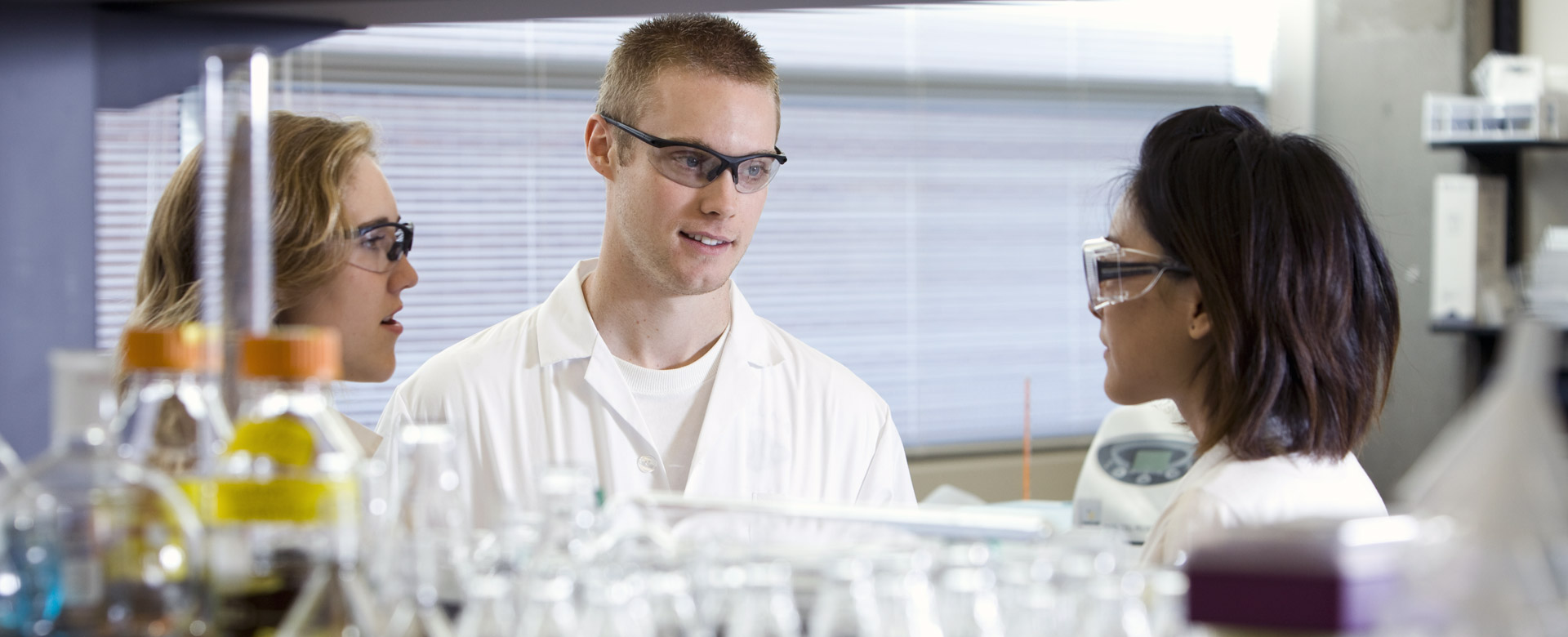Undergraduate Programs

BACHELOR OF SCIENCE (BSc)
Degree Learning Outcomes
Demonstrate competence in a scientific discipline including: key concepts, assumptions, methodologies, quantitative and qualitative techniques, computational methods, Indigenous approaches, interdisciplinary linkages, and the limits of knowledge.
Demonstrate the capacity to use current knowledge and techniques to evaluate problems, propose methods of solution, conduct analyses, evaluate and interpret results, make conclusions, and make recommendations. Question and evaluate information and interpretations, and consider alternate perspectives, including Indigenous ways of knowing.
Demonstrate the skills necessary to engage in the research process and use scholarship relevant to the discipline.
Demonstrate the ability to discuss and disseminate scientific information, to specialist and non-specialist audiences, using oral, visual, and written communication, based on logical, structured, and coherent arguments.
Demonstrate the qualities and skills necessary for employment, community involvement, and other activities including: initiative, transparency, and accountability in both personal and group contexts; work effectively with others; and demonstrate ethical behaviour.
Biochemistry and Molecular Biology
Biology and Chemistry departments (major only)
Biology (major, minor)
Chemistry (major, minor)
Computer Science (major, minor)
Data Science (major, minor)
Earth and Environmental Sciences (major, minor)
Ecology, Evolution, and Conservation Biology (major)
Economics (major, minor)
Environmental Chemistry (major only)
Freshwater Science (major only)
Geospatial Information Science (minor)
Mathematical Sciences (major only)*
Mathematics (major, minor)
Microbiology (major only)
Physics (major, minor)
Psychology (major, minor)
Statistics (major, minor)
Zoology (major only)
Science students [or students registered in a B.Sc. program] may earn a double major or declare a minor in a discipline offered by the Irving K. Barber Faculty of Arts and Social Sciences. Please see the Academic Calendar for more information.
For full details on all programs, see the Academic Calendar.
*This program is currently under review. Admissions into the program has been suspended for 2020. Students wishing to enrol in this program must contact the Mathematical Sciences undergraduate program advisor.
Majors and Minors
What’s a major? A group of courses or a field of study you specialize in during your degree.
What’s a minor? A secondary concentration of courses that often complements your major.
Major/minor or major/major must be from different disciplines. It is not possible to graduate with two sub-areas of one discipline.
No departmental offerings can be combined.
Note: the Biochemistry and Molecular Biology Major cannot be combined with any offerings from either Biology or Chemistry.
No departmental offerings can be combined.
Note: the Biochemistry and Molecular Biology Major cannot be combined with any offerings from either Biology or Chemistry.
DATA/STAT or STAT/DATA is not permitted.
There are no non-compatible combinations.
Bachelor of Sustainability (BSust)
An interdisciplinary program offered by the Irving K. Barber Faculty of Science, Irving K. Barber Faculty of Arts and Social Sciences, and Faculty of Creative and Critical Studies
Students take a set of core integrative courses specific to sustainability along with a set of advanced courses in one of the following four concentrations:
Experiential Education
Undergraduate students can take their learning outside the classroom:
- take part in the Co-op employment program
- perform self-directed research through the Undergraduate Research Awards program
- participate in the NSERC Undergraduate Research Awards program
- work as a Teaching Assistant
- explore the world through the Undergraduate Student Travel Grant
Undergraduate Student Resources
Access the services you need to help you achieve your personal, academic, and career goals.